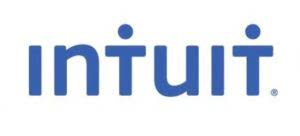
Insufficient capital investments can cause shareholders to fail adjusting entries to meet the at-risk rules for losses. The Internal Revenue Code’s at-risk rules are intended to prevent shareholders from writing off more than their actual contributions to the business. S corps can choose an accounting method that’s best suited to reporting the income and expenses of a particular company. The accounting for an S-Corp is more complicated than personal accounting. It’s essential to stay on top of bookkeeping for an S-Corp in order to maintain a positive cashflow and to understand the financial position of the business at any given point.
- Any additional profits distributed to owners are not subject to payroll taxes.
- Yet another reason to choose an S-Corp entity is the credibility that this entity structure lends to your business.
- Business formation service providers such as Tailor Brands, Inc Authority, ZenBusiness, and LegalZoom offer expert assistance filing business documents.
- This bonus depreciation is ideal for businesses making significant investments in machinery, technology, or vehicles.
- This includes updating the basis calculation after every transaction that affects it.
Do S corporations have to use accrual accounting?

C corporation owners and shareholders generally aren’t as concerned about calculating basis. That’s because shareholder tax basis is equal to what was paid for the stock. If the company earns massive revenue and invests it back into the business to grow, the shareholder’s tax basis will still be the same as when they first invested.
- S corporations, like many small businesses, can fall prey to the mistake of mixing personal and business finances.
- Effective bookkeeping can also help a corporation’s managers evaluate the business’s performance and determine what changes, if any, they should make.
- If revenues are higher than expenses, the S corporation makes a profit.
- With the proper understanding of S corporation basis and accurate bookkeeping, shareholders can better navigate tax compliance and optimize financial management within the business.
- It’s not enough to know what is an S Corp, you need to understand the specific requirements and procedures involved before making the switch.
Choose a Business Name and Register It
Common ones include capital contributions, ordinary income, Bookkeeping for Veterinarians investment gains and income, and charitable contributions. Your shareholder basis is your company’s earnings and deposits minus withdrawals. You can’t take out more money than you have — the stock basis must always remain above $0. S corporations with a significant amount of credit sales and purchases on account should consider accrual accounting. This method also provides businesses a more comprehensive view of their financial performance as they grow. Using accrual accounting vs cash accounting is important when dealing with S corp bookkeeping.

Compliance and Administrative Burdens
Choosing the right business structure is a critical decision that impacts taxes, legal s corp bookkeeping liability, and overall business operations. Choosing the right business structure affects taxes, liability, and management. An S Corporation (S Corp) offers unique advantages but has restrictions. How does it compare to structures like C Corporations (C Corps) and Limited Liability Companies (LLCs)? If a corporation, partnership, church-controlled organization, or non-resident alien owns shares, the S Corp status can be revoked.

There are no taxes applied on passive income from the employer’s end. When distributions are made to shareholders who are also employees, these must be clearly separated from payroll to avoid IRS scrutiny. Misclassifying distributions as wages can lead to unnecessary payroll taxes, while failing to account for them properly could result in penalties.
- These services are crucial for maintaining compliance, optimizing financial strategies, and navigating complex tax rules.
- You can connect with a licensed CPA or EA who can file your business tax returns.
- Setting the right salary helps you avoid IRS scrutiny and optimizes your tax savings.
- Of the 33.3 million small businesses in the U.S., approximately 27.1 million—more than 80%—are solo-owned ventures without employees, according to Forbes.
- Below are some strategies for managing and categorizing S corp revenues and expenses to streamline financial operations.
- S Corps follow more rigorous protocols, which require more detailed, thorough, and accurate bookkeeping.

However, the IRS requires that owners take a “reasonable” salary based on industry standards. Failing to do so can result in audits, penalties, and tax adjustments, making compliance essential for S Corp owners. This rule prevents large corporations from using S Corp status for tax advantages meant for smaller businesses. Shareholders who work for the company can be considered employees and receive salaries.
Why Choose S Corporation Status Over a C Corporation?
- An interest rate equal to or greater than the Applicable Federal Rate (AFR) is required to avoid imputed interest, which could result in additional taxable income for the shareholder.
- Plus, it’s a gateway to leveraging top-notch technology without the hassle and expense of maintaining it in-house.
- Due to these differences, if the S corp wishes to revert back into a C corp, the same retained equity account cannot continue being used.
- For example, you should make sure that you’re collecting all documents that result from a business transaction.
- C corporation owners and shareholders generally aren’t as concerned about calculating basis.
- The bookkeeping records must extract these amounts from the company’s sales revenue data, expense reports, monthly bills and other relevant sources.
- Unlike traditional C Corporations, which face double taxation (at both the corporate and individual level), an S Corp’s profits and losses pass directly to shareholders.
Before you jump to corporate inception, there are some situations and reasons that would turn an S-Corp election into a dealbreaker. We recommend that S corps do an audit every three years just to make sure everything is clean. If you are getting into a merger, acquisition, or IPO, you can do an additional audit. However, like Xero and QuickBooks, Zoho might be too unwieldy for smaller businesses that plan to stay small. The IRS has sent more than 55.7 million refunds to taxpayers totaling nearly $179.5 billion thus far this tax season, an increase of 1.3% and 5.9%, respectively, from last year. Residents of Hawaii are burdened by taxes the most, while Alaska residents have the lowest tax burden, a new WalletHub study found.
